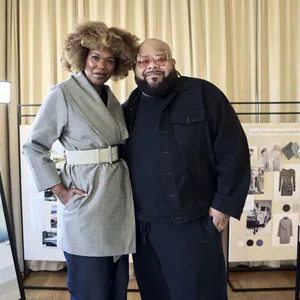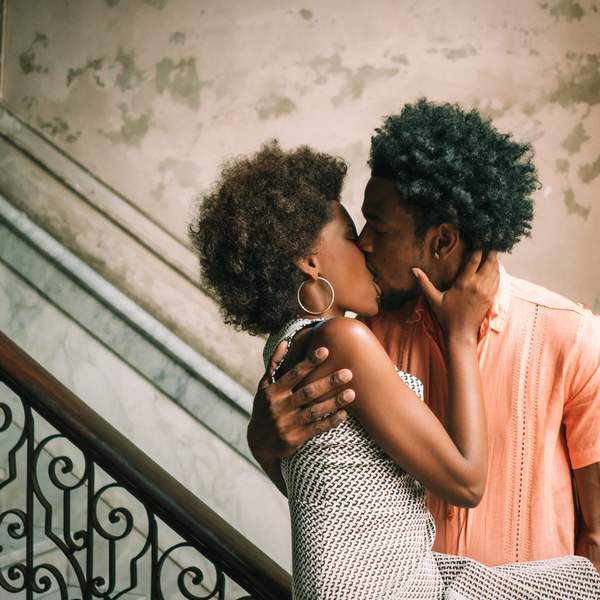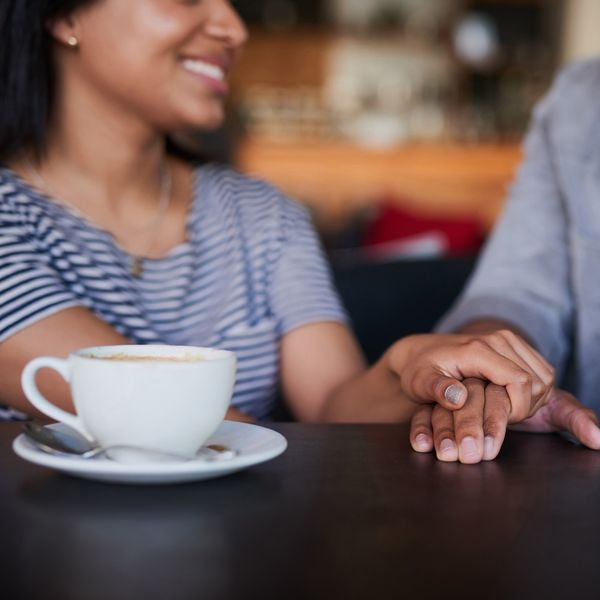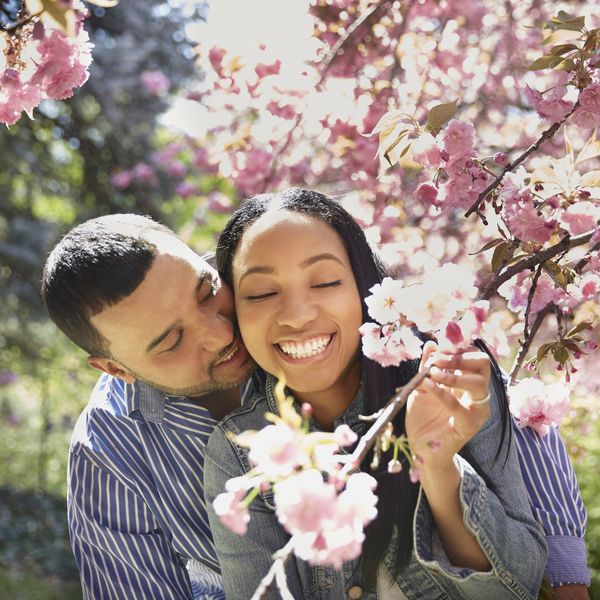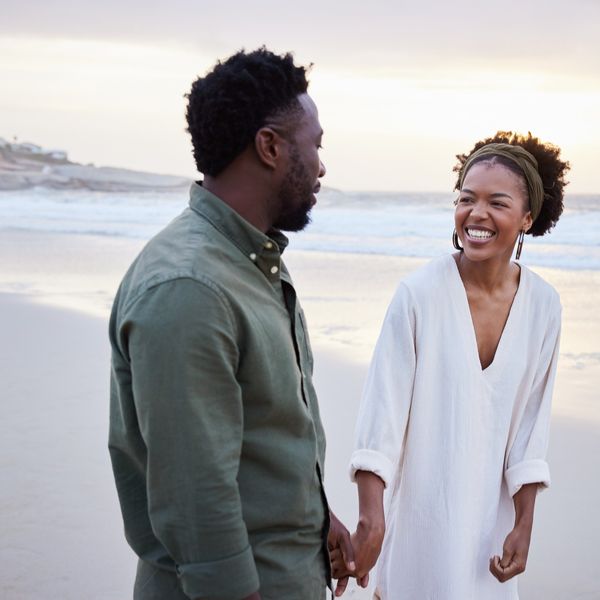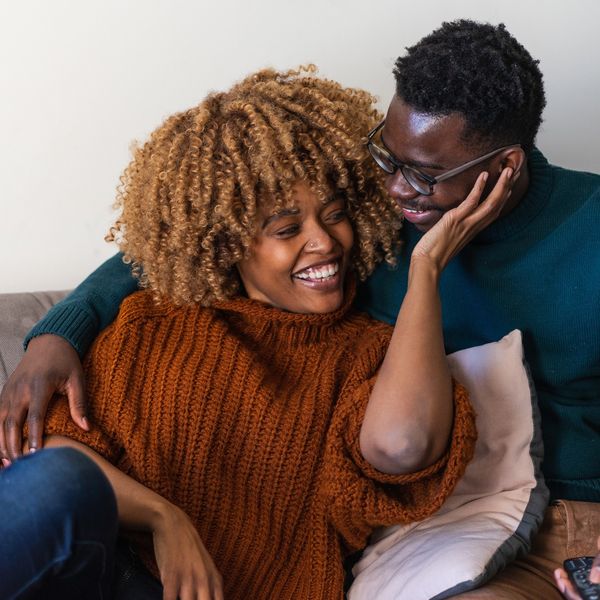No matter what your personal or spiritual views are on sex, I think if there's one thing that we all can agree on, it's the fact that if anyone should be gettin' it in, hot 'n heavy and on the regular, it's married folks. Yet, as a marriage life coach, I can tell you that most of the married clients that I have? They've got less than stellar sex lives when it comes to the kind (off the charts) and consistency (more than once every 6-8 weeks or so). Why is that?
I think a lot of it all points back to their wedding night. Did you know that reportedly only 48 percent of couples copulate on the same day that they say "I do"? Somehow, they make sure that their outfits are flawless, the DJ has an unbelievable playlist and the napkins on the tables match, yet somehow, once the wedding and reception are over, sex is not a top priority. Here's the thing about that. The word "consummate"? It means "to complete (an arrangement, agreement, or the like) by a pledge or the signing of a contract," "to complete (the union of a marriage) by the first marital sexual intercourse" and "to bring to a state of perfection; fulfill."
This means that a marriage can be annulled if two people have not consummated their union (had sex after getting married). Back in the old-school Jewish days, a reception didn't even get underway until the bride and groom went into a back room and had sex first. Why? Because only after sex/consummation were they considered to be "truly married".
My point? Sex is a big freakin' deal in a marital union, from the very day two people decide to become life partners. Yet unfortunately, there are way too many people who seem to agree with (or at least act like) the results of a survey I read on married sex—"6 out of 10 couples stated that marriage had completely ruined the excitement of having sex." (Wow and SMH.)
So, in honor of the beauty of marriage and the powerful-and-still-extremely-relevant purpose that sex serves in it, I wanted to take out some time to share 10 reasons why every married person reading this should be taking full advantage of their bed and the spouse that they share it with, just as often as they possibly can.
1. Sex Cultivates Oneness

It's always interesting to me whenever church folks try and say that the main purpose of sex in marriage is procreation. While that is a purpose (and benefit), there is something that came first in the Bible. What is it? Oneness—"Therefore a man shall leave his father and mother and be joined to his wife, and they shall become one flesh. And they were both naked, the man and his wife, and were not ashamed." (Genesis 2:24-25—NKJV) If you pay close attention to how things went down in the Garden of Eden, Adam and the Woman (her name wasn't "Eve" until after they left the garden—Genesis 3:20), while it does appear that they had sex, they didn't have children (that didn't happen until Genesis 4).
So yeah, oneness is what's paramount. A word that comes to mind when I think about two people becoming one through the act of sex is fusion—"the act or process of fusing or melting together; union". Union. Marital union. The tripped out thing about the fusion process is, even if you aren't big on the Bible, science backs this up too. When you get a chance, check out "We Should Really Rethink the Term 'Casual Sex'" and you'll see where I'm coming from. Singles, oxytocin is nothing to take lightly, and married folks, if you want to feel closer to your spouse, if you physically desire to "become one" with them, the transmission of oxytocin via sex is one way to make that happen.
2. Sex Is Great for Your Health
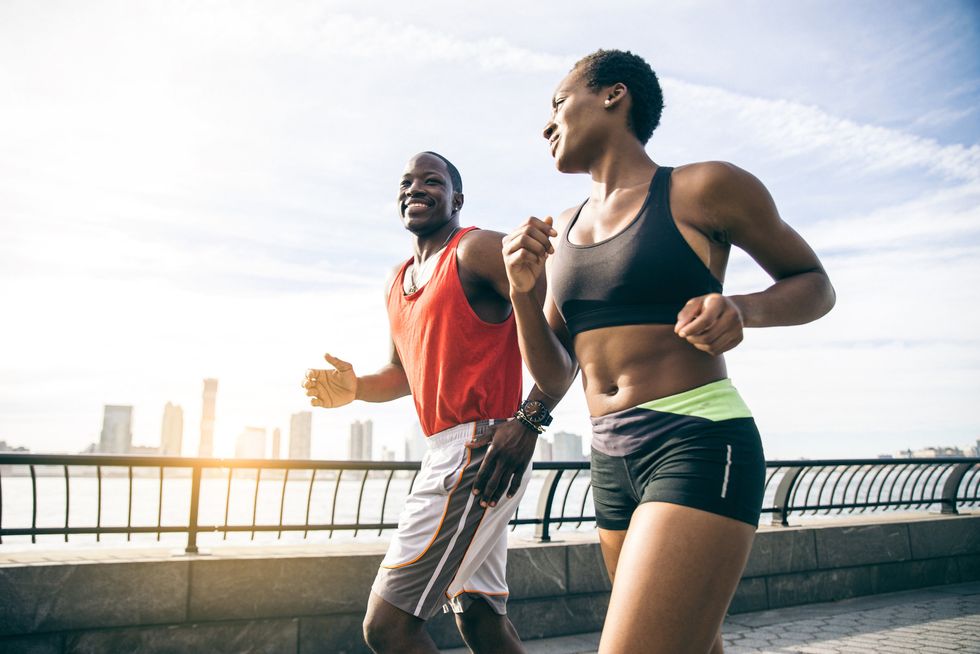
You can read articles like "Do You Swallow? The Unexpected Health Benefits of Sperm" and see that sex will definitely do your body good. However, even if you're not the biggest oral sex connoisseur, there are still a ton of benefits that come from sexual intercourse too. Sex reduces stress (more on that in just a sec), boosts your immune system, strengthens your pelvic floor and bladder, lowers your blood pressure, burns calories and can help to prevent prostate cancer when it comes to your hubby too. And that really is just the tip of the iceberg!
3. Sex Is the Ultimate De-Stressor
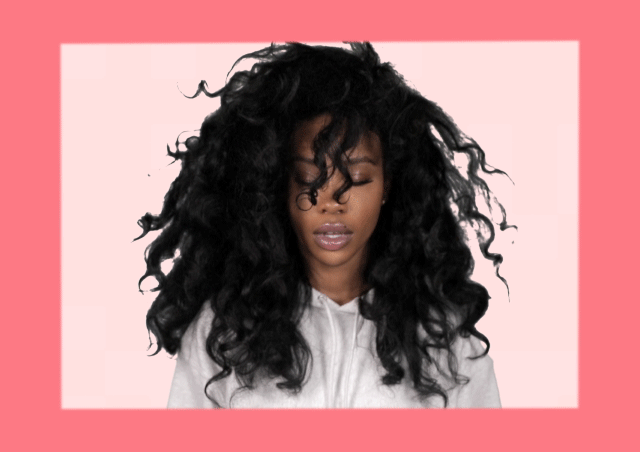
It is a proven fact that sex has a powerful way of reducing stress levels. For one thing, it releases endorphins and oxytocin so that you feel better. Sex also lowers the stress hormone cortisol in your system so that your blood pressure drops, you are less anxious, and you feel calmer. Deep breathing and climaxing also aid in making it so much easier to relax.
Being that heart disease, diabetes, headaches, depression, asthma and obesity are all health issues that are directly connected to stress, and because stress also affects our levels of productivity, concentration and effective communication, you can see why using sex to lower your stress levels is such a wise thing to do (especially morning sex!).
4. Sex Strengthens Communication
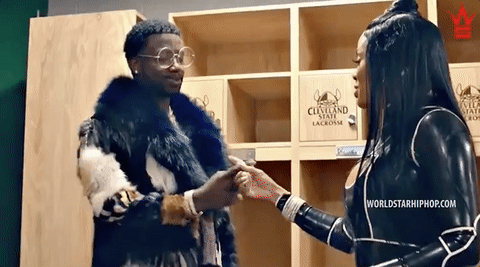
A few weeks back, I penned a piece on here about how to have a simultaneous orgasm with your partner. There are a few tips and tricks that are included; one of them is making sure that the both of you communicate with one another. What do you like? What do you want more of? What gets you there and what is a totally turn-off? (Another article that can make achieving this easier is "10 Sex Resolutions Every Married Couple Should Make".)
While it might be true that not everyone is a "dirty talker" in the bedroom, dead silence—even if it's before or after the act—isn't encouraged. For some couples, life is so hectic that the only time uninterrupted conversations can happen is in the bedroom. And sex? Sex is a form of intimacy and a gateway to feeling warmth, affection and nurturing from your partner. So, even if there's no dirty talk during, be open to some pillow talk afterwards.
Something that leads to divorce is poor communication. Something that can enhance communication is sex. This is a reality that definitely shouldn't be taken lightly.
5. Sex Is a Relational Responsibility
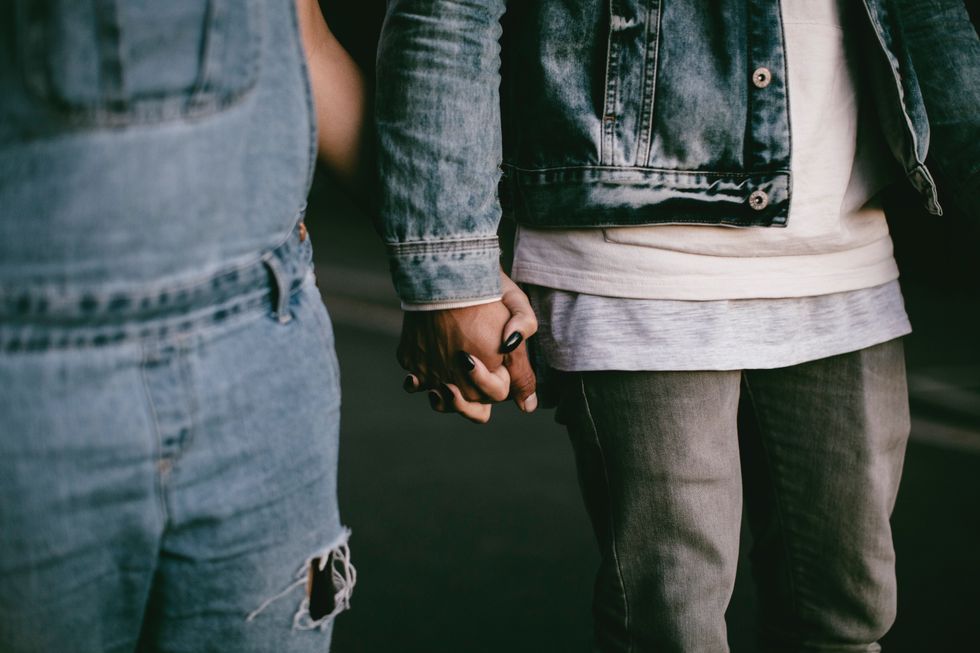
This is a point that gets overlooked way too much. That said, I'd venture to say that if there is one thing that having sex as a single person does, it's that it sets us up to be very sexually self-centered. For the most part, we only think about sex as it relates to what we want and our needs. But when we make the decision to join our lives with another individual, their wants and needs become extremely important too. Sex is no longer solely on our feel-like-it-only terms; in many ways, it becomes a staple and necessity in order to keep the bond between us and our spouse healthy, solid and strong.
A married guy that I interviewed last year on this very topic probably said it best: "When I was single, gettin' some was more like a challenge. Now that I'm married, it's a responsibility. It's not just about me or when I'm in the mood for it. It's about genuinely caring about the wants and needs of my partner too."
I've read before that a sexless marriage can sometimes be grounds of divorce based on what is known as "constructive abandonment" (I recently read that a lack of sex can cause a spouse to feel not only abandoned but betrayed too). So long as both people are physically able and there is no abuse involved (of any form), I can get why someone who has sex less than 10-15 times of year—especially year after year—would consider calling it quits. A sexless marriage is not a healthy one. In it, reciprocity is severely lacking. And in many ways, that is an irresponsible approach to marriage.
6. Sex Discourages Infidelity

I remember a woman once said to me that so long as you give a man two different pieces of something, he will never stray—a piece of a good meal and a piece of well, you know. Although she was married for close to two decades, she's divorced now. One reason why is because her husband ended up cheating on her. So no, by no means am I saying that sex will guarantee an infidelity-free relationship.
What I will say, though, is many husbands have told me that the difference between looking at another woman and thinking, "Hmph. She's pretty" vs. "Hmm, I wonder what she's like" is what their sex life is like at home. As one husband once said, "You tend to not want anything to eat unless you're hungry." Hey, you might want to push back on that, but most of the couples I've dealt with where infidelity was involved, very little bedroom action (on the front end) was a common thread.
Even the Bible acknowledges that sex can keep "outsiders" out of a married couple's bond. If you don't believe me, check out I Corinthians 7:1-5 sometime. It's quite…enlightening.
7. Sex Is a Source of Healing
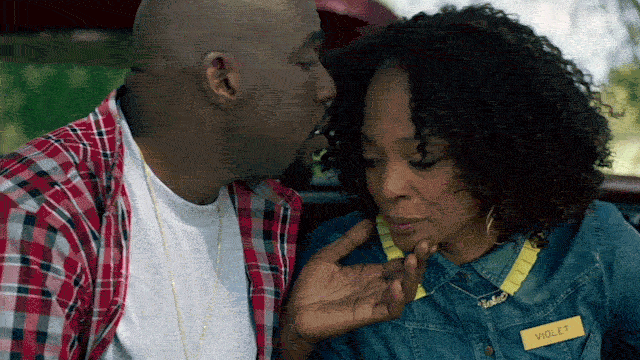
Healing is such a soothing kind of word. It means "to make healthy, whole, or sound; restore to health; free from ailment" and "to free from evil; cleanse; purify". As I was reading an article by a licensed therapist and author entitled "The Three Kinds of Sex", healing is exactly what came to mind. Basically, what she said is "sealed-off sex" is basically about you gettin' yours, "solace sex" is sex that you have when you're looking for some type of reassurance and "synchrony sex" is the kind of sex that provides the type of wholeness, restoration and purification that married couples should strive for. It's about the kind of sex that bonds you to your partner, makes you feel safe in their presence and provides you with a combination of both eroticism and joy. It's the type of sex that makes you feel loved, desired and completely nurtured.
Who doesn't feel better—mentally, physically and emotionally—after an experience like that? And, who doesn't want to feel that way, just as much as possible?
8. Sex Is a Form of Worship
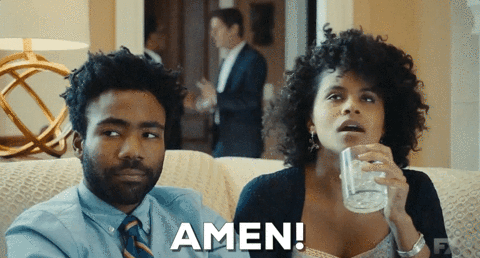
Roll your eyes if you want to, but I know married couples who say grace before engaging in sexual activity. And yes, I mean a literal, "Heavenly Father, for what we are about to partake of, we are truly grateful. Please bless this entire experience. Amen" kind of prayer. If that seems sacrilegious and if you're a believer of the Bible, I don't know how it could be because the Good Book has sex all up in it. Even if you're not religious, science co-signs on sex being a spiritual experience as well. There are studies to support that the bonding hormone oxytocin actually causes men to feel connected to a higher power whenever elevated amounts of it is in their system.
Since oxytocin is at its peak during an orgasm, sex is definitely a spiritual experience; probably one of the most powerful ones that there is. Don't @ me on this. The Bible and science have my back. There is absolutely no need.
9. Sex Conveys Love, Desire and Selflessness
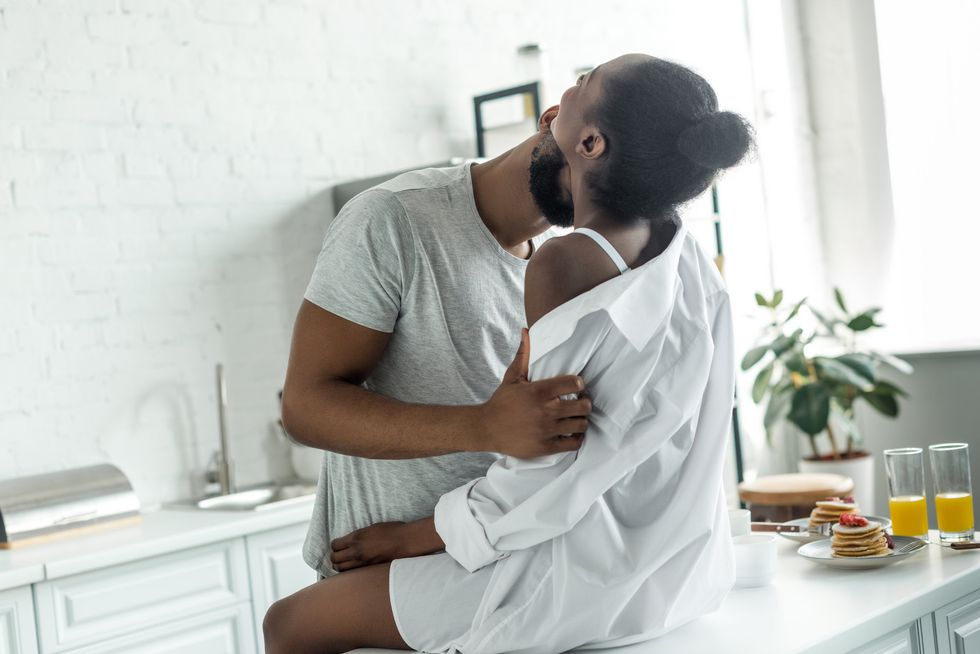
I know some pretty "'bout it, 'bout it" fellas who, not only have absolutely no intentions on ever settling down, they probably couldn't figure out how many partners they've had if somebody offered them a million bucks to do so. Still, every single one of them admit that sex with someone they care about tops sex with a "random" any day of the week.
An article entitled "The Differences Between Hook-Up Sex, Marital Sex, and Making Love" sheds some light into why. According to the author, with hook-ups, it's all about using someone else's body for your own pleasure; marital sex comes from a place of emotional connection and intimacy (although conflicts and disagreements can sometimes get in the way), and making love is "…when you treat each other as equal human beings within your daily relationship, and you're transparent about your inner life and emotions, you automatically feel more stimulation and excitement with each other. When you feel connected as equals and yet engage each other as separate, distinct individuals as well, that generates new energy and it enhances the sexual energy between the two of you."
I think the reason why virtually all of us prefer sex in a committed relationship is because when someone stands before you and declares that they've got your back, through thick and thin, no matter what, there's a safety in that. It goes beyond desire, to love and the purest form of selflessness. Commitment doesn't get any realer than when it comes to marriage.
10. Sex Can Get You Through “It”

Another interesting read on the topic of married sex is "How Often Married Couples Have Sex After 5, 10, 20, 30 Years Together". There is a wide range of answers, for sure. As I was reading that some couples still get it on 3-4 times a week, even after many years have passed, I thought about what I tell husbands and wives in my sessions—"With all of the responsibility that comes with marriage, married folks deserve sex!" Do you know what a lot of them tell me in response? Sometimes it's the pure pleasure of sex that gets them through the tough times.
"I've never understood why wives will withhold sex to make a point," one wife said to me. "Sounds to me like the sex isn't that good because if there's one thing I'm not gonna do in my marriage bed is deprive myself of what goes on up in there!" Good for her.
And when you think of all that was shared about marital sex in this lil' write-up, hopefully more of you can relate to what she said than not. Again, if sex is for anyone, it's married folks. It's pleasurable. It's fulfilling. It's also extremely necessary. For all of these reasons and more.
Wives (and husbands) reading this, from the very bottom of my heart, GET. YOURS. OFTEN.
Trust me, if I was married, I would be. Straight up.
Want more stories like this? Sign up for our newsletter here and check out the related reads below:
Maintenance Sex Could Be The Key To A Successful Marriage
10 Sex Resolutions Every Married Couple Should Make
Featured image by Getty Images.
- 7 Things Married Couples Do To Damage Their Sex Lives & Don't ... ›
- How Often Married Couples Have Sex - xoNecole: Women's Interest, Love, Wellness, Beauty ›
- Habits Of Couples Who Have Great Sex - xoNecole: Women's Interest, Love, Wellness, Beauty ›
- Married Sex, Types Of Sex In Marriage - xoNecole: Women's Interest, Love, Wellness, Beauty ›
- Reasons Why Your Orgasms Are Inconsistent - xoNecole: Women's Interest, Love, Wellness, Beauty ›
- How Often Should You Be Having Sex - xoNecole: Women's Interest, Love, Wellness, Beauty ›


